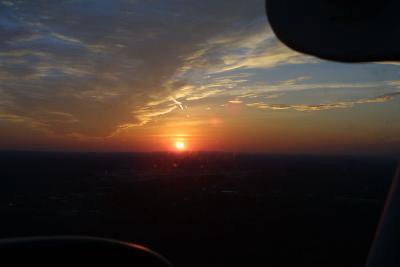How soon we forget
Enough time must have passed since the crash of Colgan 3407 near Buffalo last winter.
It's been less than a year, but ample time, it appears for management at Colgan Air to take two steps back on the little progress they had made on the issue of fatigue.
The crash, which killed everyone on board the Bombardier Q400, stirred enough passion about pilot fatigue that even Congress became involved, passing legislation aimed among other things to curb fatigue.
Colgan management, however, seems to think the accident is behind them and feels it can now return to business as usual. In that spirit, the company is putting more stringent restrictions on when and how crew members can call in fatigued, a responsibility that is thrust into pilots' hands by the Federal Aviation Regulations.
From now on, Colgan pilots and flight attendants will not be allowed to call in fatigued if they have had 12 hours of rest and can no longer declare themselves unfit for future duty (i.e. calling tonight for tomorrow morning's flight). To make matters worst, those pilots who violate these new rules will now face disciplinary action.
In a recent article published in the Buffalo News, Dan Morgan, VP of safety and regulatory compliance for Colgan, said that "over the past two months, the instance of fatigue calls with no valid reason for fatigue have increased to the point where frivolous fatigue calls are now the majority."
Frankly, I find that hard to believe. There will always be in every profession a small group of people ready to abuse the rules out of sheer laziness. But to accuse the bulk of those who called in fatigued of lying is arrogant and in all likelihood a gross exaggeration.
It is also not management's role to determine what a "valid reason for fatigue" is. What they see on paper on a pilot's schedule does not necessarily reflect the actual level of fatigue one may experience.
The company might also be forgetting that a pilot who calls fatigued loses pay. So where's the incentive for already underpaid, struggling pilots?
Colgan's decision is outrageous, unsafe and simply another sign that the company aspires to nothing but scraping the bottom. I am talking here about management, not the pilot group, which counts among its members a great number of fine aviators.
I have written much about fatigue in previous posts, so I will not repeat myself.
Since then, however, I have had to call in fatigued once, my first such occurrence in my 3 years at this airline . It was a tough decision but one that was justified: I was just too tired to fly. At the same time, I felt less than pleased to leave the company one FO short and about losing pay. But everyone, from the scheduler who took my call to my chief pilot and the unions respected and never once questioned my decision. And that is how it should be.
As long as the FAA requires pilots to determine whether or not they are fit for duty, airlines should interfere only if blatant abuses of the rules occur.
Putting artificial numbers on what makes a fatigue call justified or not, such as Colgan's 12 hours of rest rule, is asinine. Just because a pilot's schedule shows 12 hours of rest does not mean that is what the pilot gets. Some hotels we stay in are less than quiet and personal issues can rob one of sleep even in such a long period of rest. Also, the nature of our schedules tends to interfere with our circadian rhythm, making it sometimes difficult to get meaningful rest during overnights.
It is not the company's determination and I hope the FAA sees this as an unacceptable affront to both crew members and passengers and a serious safety issue.
An airline should never intimidate its pilots into doing the wrong thing. This is what led to 3407's tragedy.
How soon we forget...


